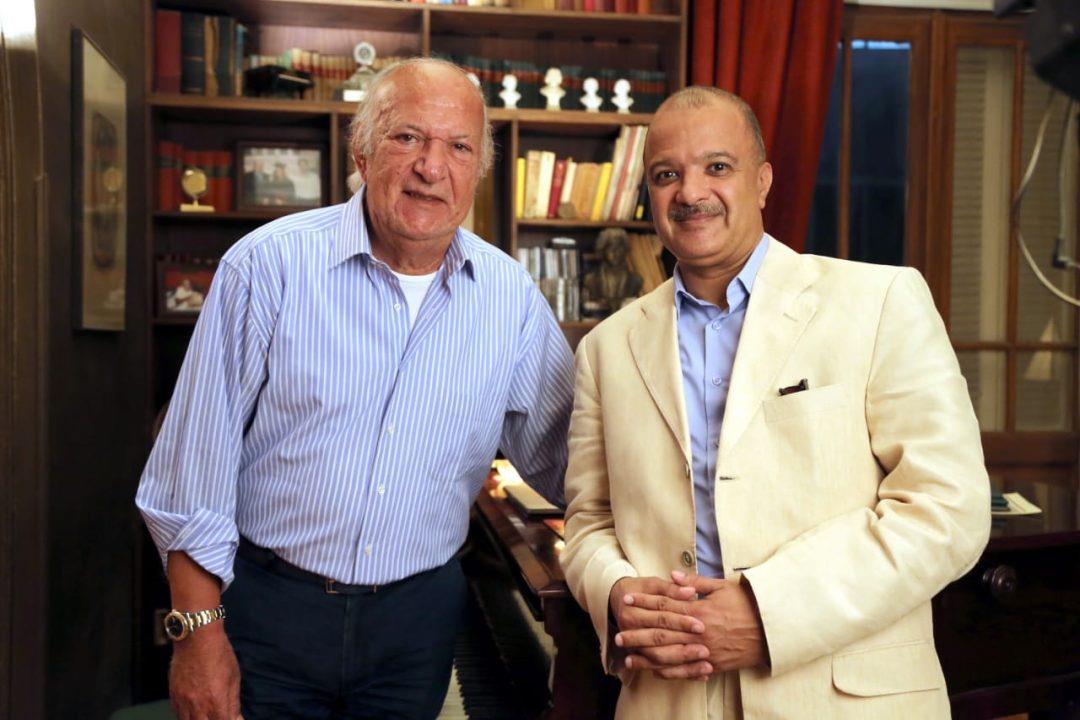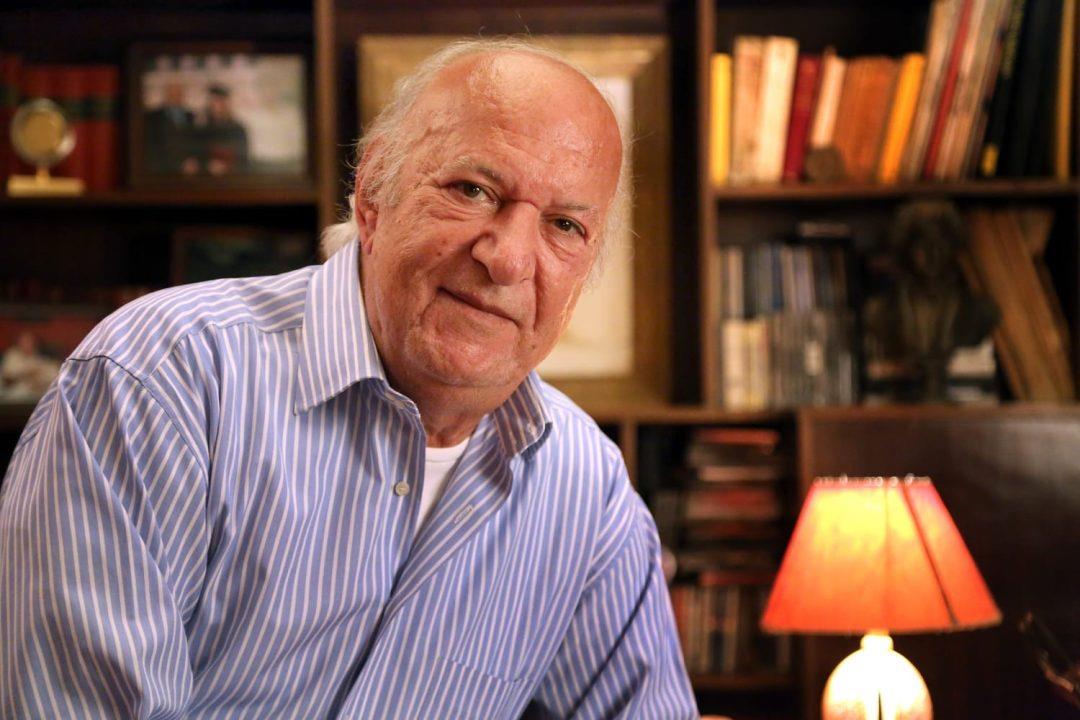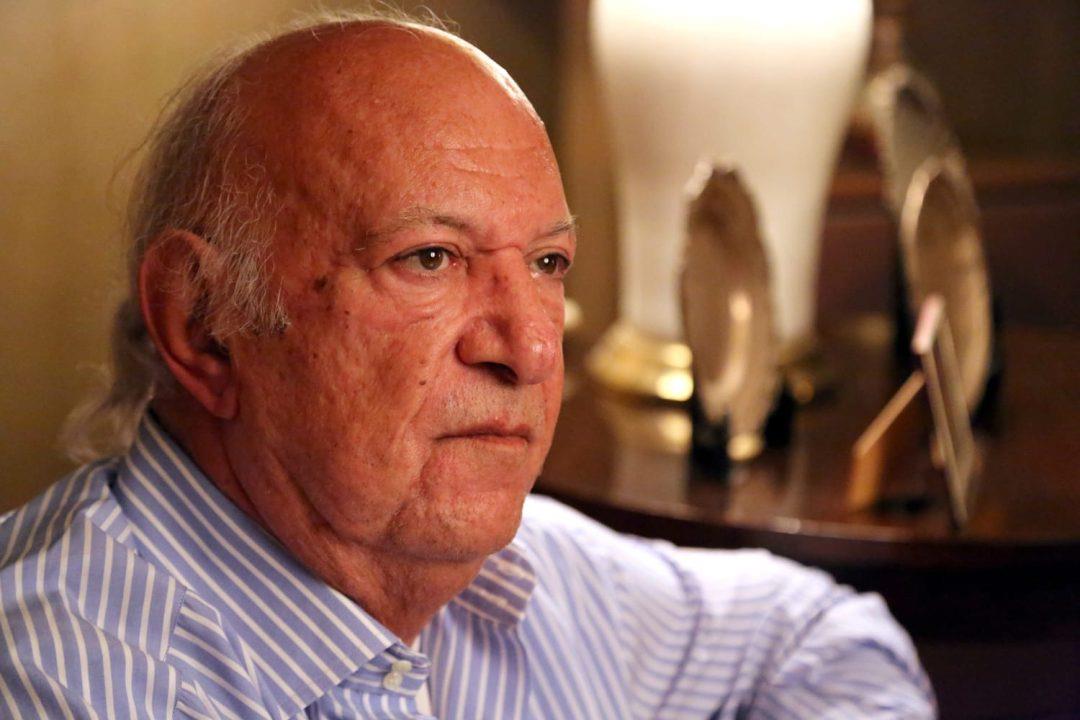(MENAFN- Daily News Egypt) Photography by Shihabuddin Bella
Omar Khairat, a maestro in the world of film music, has etched his melodies into our collective memory with his extraordinary musical prowess. His distinctive approach not only distinguishes him from his contemporaries but also cements his legacy as one of Egypt's most eminent musical icons-as both an illustrious performer and a distinguished composer.
With a masterful touch, Khairat weaves a unique tapestry of life's rhythms using the universal language of music. His forte is the creation of enthralling melodies and intricate musical phrases that infuse our existence with an array of compositions, spanning cinematic scores to songs brought to life by revered vocal talents. Celebrated as a virtuoso pianist, he seamlessly blends Eastern and Western techniques with unparalleled skill. In an exclusive interview with Daily News Egypt, Khairat offers profound reflections on a variety of topics, including cinema, Sufism, and beyond, sharing his deep well of knowledge.

How significant was it for you to be honoured as the Cultural Personality of the Year by the Sheikh Zayed Book Award?
It was a profound honour to receive the“Cultural Personality of the Year” from the prestigious Sheikh Zayed Book Award. The surprise recognition filled me with immense joy, and I eagerly anticipate my visit to the Emirates on 21 May to receive this distinguished accolade. This award is a testament to the resonance of my artistic endeavours and musical compositions with the Arab audience. I am deeply thankful for the divine gift of talent, which I endeavour to share with the public, enriching humanity. This honour
fuels my passion for musical innovation and marks a significant milestone in my career. I dedicate this award to Egypt, my homeland, as it represents a badge of honour for me. Nonetheless, I believe the truest form of reward for an artist is the appreciation and support from the audience.
Were you anxious about performing concerts while the Arab and Egyptian audiences were engaged with contemporary singers?
Not in the slightest. On the contrary, I was filled with excitement. This is my passion and my craft, and I am grateful to God for the honour and success that have come with it. My music has found a resonant chord with the Egyptian and Arab public, and their enthusiasm has been a crowning achievement.
Does the consistent full attendance at your concerts ever instil fear about the future stages of your career?
Indeed, the sight of a full house at my concerts always stirs a sense of trepidation. This fear is a constant companion, reflecting the depth of emotion and commitment I invest in my music. My musical journey is fueled by a desire to elevate the art and foster an appreciation for pure music in a society that often favours songs over compositions. I am dedicated to advancing the legacy of the revered musician Abu Bakr Khairat, the pioneer of musical education in our country through The Conservatory.
Is it a concern for you that the youth attending your concerts also enjoy 'Mahraganat' or Egyptian electro music?
While it's intriguing that my concertgoers also listen to 'Mahraganat', I'm not worried. True art has longevity, and while musical fads may fluctuate, works that are crafted with respect and evoke profound emotions will persist. Valuable artistic expressions will always find their audience, even if they temporarily explore other genres. Meaningful art must remain accessible and present.

Despite your acclaim in music, particularly for film soundtracks, you've also made a significant impact with song compositions, haven't you?
Indeed, the human voice is a pivotal element of music, and songs are just one facet of this art form, alongside symphonies, concertos, and sonatas, to name a few. Historically, songs have been celebrated because they don't necessitate formal musical education, unlike composition. However, we've had legendary composers like Al-Sunbati and Abdel-Wahab who've left indelible marks on our culture. My focus has been on the global evolution of music, creating templates for musical expression. I adore songs, and when I compose them, they resonate with people, who often sing along even when only the music is played.
In your songwriting for vocalists, you've selectively worked with certain artists. What guided these choices?
My collaborations have been with singers who possess unique vocal qualities and the ability to interpret melodies beyond a single linear tune. Artists like Ali Al-Hajjar and Mohamed Mounir have expansive vocal ranges and a deep understanding of music, which makes our work together especially rewarding. Ali Al-Hajjar, in particular, was the first singer I composed for, and his strong, melodious voice and musical insight have led to many successful projects. My choices were driven by the distinctiveness of these artists, and I've also enjoyed working with other talented singers like Angham and Latifa.
Have any popular young singers like Amr Diab, Tamer Hosni, or Hamaki approached you for a song melody?
No, such a request has not been made to me.

What is your opinion on the current music scene?
Music that lacks depth may be fleeting, lasting only a month or two. However, works that are crafted with respect and evoke sophisticated emotions will stand the test of time. Songs of value must continue to be present and accessible.
Has the frequency of your concerts impacted your artistic output?
My passion for live performances remains strong due to their unique advantages. The connection between the audience, the music, and myself during concerts is incredibly profound. While I have shifted my focus more towards composing music, which is a complex art in itself, I am also preparing to present new works that reflect the dedication and sincerity of my past efforts.
Which film soundtracks that you've provided are dearest to you?
The films directed by Sherif Arafa, like Al Jazeera and Sons of the Cousin, hold a special place in my heart, particularly because we recorded the music with the London Orchestra. Youssef Chahine's films are also very close to me due to their meticulous musical preparation.
Why is there inconsistency in the number of films you score each year?
I've been fortunate to work with great directors and have been selective with projects, especially given the volume of offers. It's important to choose the best among them, which sometimes results in varying numbers of scored films each year.
How does a soundtrack convey the essence of an artistic work?
A soundtrack translates the narrative and imagery of an artistic work by using music as a language. The rhythms and melodies act as auditory counterparts to the story and themes presented.
You've scored only a few documentary films. Did this not meet your ambitions?
On the contrary, I take pride in the documentaries I've scored, particularly the trilogy of Qasr al-Qubba, Qasr al-Tahira, and Qasr Ras al-Tin. Unfortunately, the quality of recent offers has not met my standards.
Your compositions often exude a sense of spirituality. What inspires this?
My upbringing in a religious environment and life experiences have imbued me with a talent for expressing spirituality through music. This spiritual dimension emerges naturally, reflecting my true self.
Are you considering creating a work dedicated to Sufism?
I have previously explored Sufism through the play“Hallaj,” which continues to resonate with audiences. I am contemplating presenting a new Sufi work shortly.
Some label you as an 'elite' artist. How do you respond to that?
I don't favour the label of 'elite artist.' I aspire to be an artist of the people, akin to the late, great Sayed Darwish, as this is a trait I hold in high regard.
MENAFN16052024000153011029ID1108220394